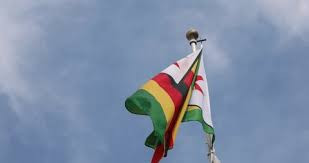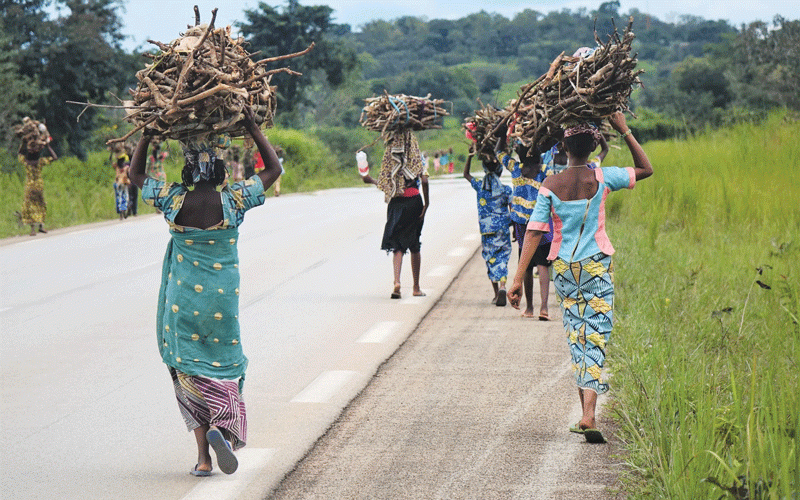
As we remember the milestones achieved since gaining self rule 45 years ago, let us take a moment of silence for every hero — named and unnamed.
For context purposes, in this article I will first start by defining the word hero. Secondly, I will introduce an allegory using named and unnamed heroes to represent celebrated war veterans and our usually forgotten cultural heritage that afforded the youthful comrades to step up for the sacred responsibility.
A "hero" is a person or a system admired for their or its courage, outstanding achievements, or noble qualities. Courage and noble qualities sprout up from the strong foundations of cultural heritage.
Cultural heritage encompasses the traditions, values, and practices passed down from previous generations, including both tangible and intangible aspects. It is a legacy that defines a culture's identity and continuity, fostering respect for cultural diversity.
As we march towards 2030, are the lives of both flora and fauna improving?
Development is not just about the numbers, though they do matter.
It is also about the welfare of the people and every other form of life. What is the quality of life above and below the earth? Are people and all other forms of life being afforded adequate habitats?
Is there food security?
- Mbavara eyes to resurrect Matavire’s music legacy
- 5 best forex trading strategies for Africans
- Why recognition of Mbare luminaries deserves praise
- 5 best forex trading strategies for Africans
Keep Reading
Let us reflect on the visions we have set before us and let us continue to make meaningful changes towards a Zimbabwe that we and all other forms of life want. Peace, unity and development towards Vision 2030 must have a holistic approach.
If no one is to be left behind, then development must encompass all aspects of life — economic, social and democratic. Independence, particularly in a political context, often involves reclaiming or asserting cultural autonomy.
This means prioritising and promoting a nation's own unique cultural identity and heritage, distinct from the influence of external powers or dominant cultures. In some cases, it can involve a conscious effort to decolonise or "un-inherit" past legacies, as seen in the preservation of liberation heritage and the development of self-representation within museums and culture centres.
In post colonial societies, cultural independence can be seen as a way to break free from the cultural dominance of the coloniser, fostering a sense of self-determination.
Sadly, 45 years after lowering the Union Jack, our native grains are still under oppression of the Mexican coloniser "maize".
Preserving and promoting cultural heritage is a crucial aspect of independence, ensuring that the nation's unique foods, traditions and history are not lost. Native or indigenous foods hold significant potential for building sustainable and resilient food systems.
They offer numerous environmental, socio-cultural, and economic benefits, aligning with the principles of sustainable development. By embracing and revitalising these traditional food systems, communities cannot only enhance their food security and nutrition but also preserve cultural heritage and promote environmental stewardship.
Culture can be a powerful tool for mobilising people and fostering solidarity during independence struggles, as seen in the use of music, art, and other forms of expression to promote unity and resistance.
As we seek to liberate our nation from 21st century social and environmental struggles, it is high time we should use our cultural heritage to harness the future as we once did.
Cultural practices can be a form of resistance against external domination, allowing marginalised groups to preserve their identities and resist assimilation.
Human identity and sustainability are intertwined, meaning how individuals perceive themselves and their role in the world significantly impacts their willingness and ability to engage in sustainable practices.
A strong sense of national identity, for example, has been linked to pro-environmental behaviour and concern for the planet.
In the book The Genuine Shona, Gelfand correctly observes that the Shona had a high moral system when he said: The Shona have clear concepts of the virtues and vices and they have much to say about the aberrations of personality.
So they have a definite idea of what constitutes behaviour in their society and its importance.
Good relations between one man and another are bound to suffer if one should commit an anti-social act.
The above was also true with regards to the relationship we had with the environment and other forms of life.
Heritage plays a crucial role in sustainable development by acting as a driver and enabler of change, contributing to economic, social, and environmental sustainability.
It supports community well-being, fosters social cohesion, and enhances resilience, while also providing opportunities for economic development through tourism and traditional skills.
On the contrary, self-hatred both individual and collective can significantly impact mental and physical well-being of individuals or citizens respectively, often leading to or exacerbating various dysfunctional behaviours and mental health conditions, leading to substance use and abuse, gambling and others.
It can manifest as constant negative self-evaluation, feelings of inadequacy, and low self esteem, potentially leading to depression, anxiety, and even suicidal ideation.
There is a strong correlation between social and environmental health to an extent that when one sneezes the other will catch a flu as proved by ecological grief.
Ecological grief, also known as eco-grief or climate grief, is a form of grief experienced in response to environmental loss and the impacts of climate change.
It encompasses the emotional distress, sadness, and sense of loss associated with witnessing or anticipating the loss of species, ecosystems, and meaningful landscapes.
This grief can manifest as a range of emotions, including anxiety,depression, and a sense of helplessness.
Culturally, as Africans, we had ways of reverencing nature and all forms of life which were destroyed and demonised by colonisation through its egocentric capitalistic models which we ought to dismantle to restore the long lost balance critical to people and planetary harmony needed to ensure sustainable development.
The ideal of development as a continuing process of growth, creation, improvement and positive change has yielded to a reality more frequently marked by destruction, division, deprivation and depletion. The difference between the cherished ideal and the cruel reality finds its roots in a poverty of cultural values and spirituality which usually manifest as collective self hatred exhibited by the greater population of our citizens.
Poverty, hunger and other deprivations persisting in the post-colonial era are not an issue of logistics, technology or financing so much as a question of values and morality embedded in our cultural heritage.
Setting a clear and defined course of action that we all agree on with regard to the development agenda is important but we must not forget that the nation cannot be changed with words and plans alone: it can only change when our cultural values embedded in our heritage are restored.
The crisis of the non implementation of action plans is itself an identity crisis due to dismantled cultural foundations.
This is not to decry the important achievements that have been made under the current dispensation in areas such as health, life expectancy and the reduction of poverty.
Nevertheless, our nation remains under the dark cloud of an excessively materialistic paradigm,one of the consequences of which is that development is too often a narrow concept largely understood only in economic terms.
This narrow concept of development can find its roots in a narrow concept of the self that neglects the larger reality of heart and soul, dims the inner light of the spirit and cultural values and forgets the essential oneness of the human family and its environment.
Lasting development within society will not happen without holistic harmonious development of the individual and his or her environment.
We need to move from an overly materialistic approach to one that includes the broader an deeper realities of life in its entirety and experience: the inner world of our thoughts and cultural values and the innate spirituality on which our worth and dignity are based.
We will not be able to get the outer nation in order until we have first learned to get our inner world in order and transcend short term selfishness, consumerism, disregard for other forms of life and a corruption of values.
We will not see the changes we look for in Zimbabwe — such as the elimination of poverty, violence and injustice — until we first bring about those changes in ourselves.
- Chikodzi is a social entrepreneur, founder and director of Chartered Institute ofOrganic Health Trust, chartered customer service professional and research and advocacy director for Africa Project Against Suicides. These weekly New Perspectives articles, published in the Zimbabwe Independent, are coordinated by Lovemore Kadenge, an independent consultant, managing consultant of Zawale Consultants (Pvt) Ltd, past president of the Zimbabwe Economics Society and past president of the Chartered Governance & Accountancy Institute in Zimbabwe (CGI Zimbabwe). — [email protected] or mobile: +263 772 382852










